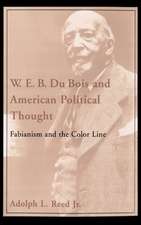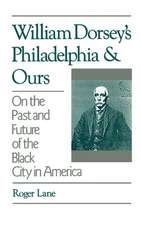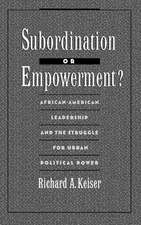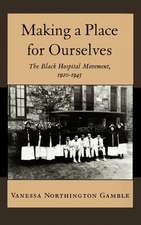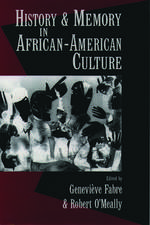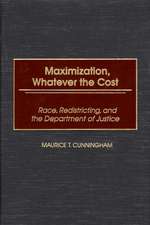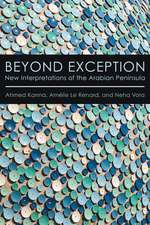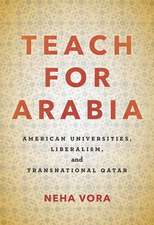Impossible Citizens – Dubai`s Indian Diaspora
Autor Neha Voraen Limba Engleză Paperback – 17 mar 2013
Preț: 261.38 lei
Nou
Puncte Express: 392
Preț estimativ în valută:
50.01€ • 52.12$ • 41.41£
50.01€ • 52.12$ • 41.41£
Carte tipărită la comandă
Livrare economică 03-17 aprilie
Preluare comenzi: 021 569.72.76
Specificații
ISBN-13: 9780822353935
ISBN-10: 0822353938
Pagini: 264
Ilustrații: 14 illustrations
Dimensiuni: 157 x 237 x 20 mm
Greutate: 0.39 kg
Ediția:New.
Editura: MD – Duke University Press
ISBN-10: 0822353938
Pagini: 264
Ilustrații: 14 illustrations
Dimensiuni: 157 x 237 x 20 mm
Greutate: 0.39 kg
Ediția:New.
Editura: MD – Duke University Press
Recenzii
"In Impossible Citizens, Neha Vora examines how Indians living in Dubai, where they are formally excluded from citizenship, create other forms of belonging through relationships with various communitiesincluding Indians of other classes, other South Asians, and Emiratisas well as particular spaces within the city-state. This book makes a strong argument with both theoretical and empirical significance that Indians are integral to the legitimacy of the Emirati state."Ilana Feldman, author of Governing Gaza: Bureaucracy, Authority, and the Work of Rule, 1917-1967 "Neha Vora's Impossible Citizens is not only a fine ethnography of the 'permanently temporary' Indian population in Dubai, it is also a searching re-examination of concepts such as 'citizenship,' 'diaspora,' and 'democracy.' In the finest traditions of ethnographic work, Vora thoroughly undermines the usual scholarly use of these concepts by showing how little analytic purchase they give us in one case. She argues instead for a view in which migrants are not separated from citizens, and the economic causes of migration are not seen as disconnected from questions of social and cultural citizenship. Theoretically innovative and ethnographically rich, this study will be a necessary guide to modes of belonging in the contemporary globalized world."Akhil Gupta, author of Red Tape: Bureaucracy, Structural Violence, and Poverty in IndiaVoras book is not merely an interesting narrative; it is also theoretically sophisticated, working through the Dubai case to argue an urgent need for questioning several core analytic concepts she confidently ranges around questions of citizenship, migrancy and governmentality including taxation and welfare and deftly demonstrates how academic and popular discourse alike fail to disengage from the imperial genealogies of their own epistemologies Accordingly, this book deserves a readership beyond its obvious regional constituencies. Anyone thinking about state, citizenship, migration, rights or contemporary economies, or about the intellectual and political work that we do when we delineate and separate analytic domains, prising them from the flow of daily reactions and transactions that form social life, will find much here. - Times Higher Education
"In Impossible Citizens, Neha Vora examines how Indians living in Dubai, where they are formally excluded from citizenship, create other forms of belonging through relationships with various communities - including Indians of other classes, other South Asians, and Emiratis - as well as particular spaces within the city-state. This book makes a strong argument with both theoretical and empirical significance that Indians are integral to the legitimacy of the Emirati state." - Ilana Feldman, author of Governing Gaza: Bureaucracy, Authority, and the Work of Rule, 1917-1967 "Neha Vora's Impossible Citizens is not only a fine ethnography of the 'permanently temporary' Indian population in Dubai, it is also a searching re-examination of concepts such as 'citizenship,' 'diaspora,' and 'democracy.' In the finest traditions of ethnographic work, Vora thoroughly undermines the usual scholarly use of these concepts by showing how little analytic purchase they give us in one case. She argues instead for a view in which migrants are not separated from citizens, and the economic causes of migration are not seen as disconnected from questions of social and cultural citizenship. Theoretically innovative and ethnographically rich, this study will be a necessary guide to modes of belonging in the contemporary globalized world." - Akhil Gupta, author of Red Tape: Bureaucracy, Structural Violence, and Poverty in India "Vora's book is not merely an interesting narrative; it is also theoretically sophisticated, working through the Dubai case to argue an urgent need for questioning several core analytic concepts... she confidently ranges around questions of citizenship, migrancy and governmentality - including taxation and welfare - and deftly demonstrates how academic and popular discourse alike fail to disengage from the 'imperial genealogies' of their own epistemologies... Accordingly, this book deserves a readership beyond its obvious regional constituencies. Anyone thinking about state, citizenship, migration, rights or contemporary economies, or about the intellectual and political work that we do when we delineate and separate analytic domains, prising them from the flow of daily reactions and transactions that form social life, will find much here." - Times Higher Education
"In Impossible Citizens, Neha Vora examines how Indians living in Dubai, where they are formally excluded from citizenship, create other forms of belonging through relationships with various communities - including Indians of other classes, other South Asians, and Emiratis - as well as particular spaces within the city-state. This book makes a strong argument with both theoretical and empirical significance that Indians are integral to the legitimacy of the Emirati state." - Ilana Feldman, author of Governing Gaza: Bureaucracy, Authority, and the Work of Rule, 1917-1967 "Neha Vora's Impossible Citizens is not only a fine ethnography of the 'permanently temporary' Indian population in Dubai, it is also a searching re-examination of concepts such as 'citizenship,' 'diaspora,' and 'democracy.' In the finest traditions of ethnographic work, Vora thoroughly undermines the usual scholarly use of these concepts by showing how little analytic purchase they give us in one case. She argues instead for a view in which migrants are not separated from citizens, and the economic causes of migration are not seen as disconnected from questions of social and cultural citizenship. Theoretically innovative and ethnographically rich, this study will be a necessary guide to modes of belonging in the contemporary globalized world." - Akhil Gupta, author of Red Tape: Bureaucracy, Structural Violence, and Poverty in India "Vora's book is not merely an interesting narrative; it is also theoretically sophisticated, working through the Dubai case to argue an urgent need for questioning several core analytic concepts... she confidently ranges around questions of citizenship, migrancy and governmentality - including taxation and welfare - and deftly demonstrates how academic and popular discourse alike fail to disengage from the 'imperial genealogies' of their own epistemologies... Accordingly, this book deserves a readership beyond its obvious regional constituencies. Anyone thinking about state, citizenship, migration, rights or contemporary economies, or about the intellectual and political work that we do when we delineate and separate analytic domains, prising them from the flow of daily reactions and transactions that form social life, will find much here." - Times Higher Education
Cuprins
Acknowledgments ix
Introduction. Exceptions and Exceptionality in Dubai 3
1. A Tale of Two Creeks: Cosmopolitan Productions and Cosmopolitan Erasures in Contemporary Dubai 36
2. An Indian City? Diasporic Subjectivity and Urban Citizenship in Old Dubai 65
3. Between Global City and Golden Frontier: Indian Businessmen, Unofficial Citizenship, and Shifting Forms of Belonging 91
4. Exceeding the Economic: New Modalities of Belonging among Middle-class Dubai Indians 117
5. Becoming Indian in Dubai: Parochialisms and Globalisms in Privatized Education 144
Conclusion. Reassessing Gulf Studies: Citizenship, Democracy, and the Political 171
Notes 191
Bibliography 221
Index 235
Introduction. Exceptions and Exceptionality in Dubai 3
1. A Tale of Two Creeks: Cosmopolitan Productions and Cosmopolitan Erasures in Contemporary Dubai 36
2. An Indian City? Diasporic Subjectivity and Urban Citizenship in Old Dubai 65
3. Between Global City and Golden Frontier: Indian Businessmen, Unofficial Citizenship, and Shifting Forms of Belonging 91
4. Exceeding the Economic: New Modalities of Belonging among Middle-class Dubai Indians 117
5. Becoming Indian in Dubai: Parochialisms and Globalisms in Privatized Education 144
Conclusion. Reassessing Gulf Studies: Citizenship, Democracy, and the Political 171
Notes 191
Bibliography 221
Index 235
Notă biografică
Descriere
In Impossible Citizens, Neha Vora draws on her ethnographic research in Dubai's Indian-dominated downtown to explore how Indians live suspended in a state of permanent temporariness.

